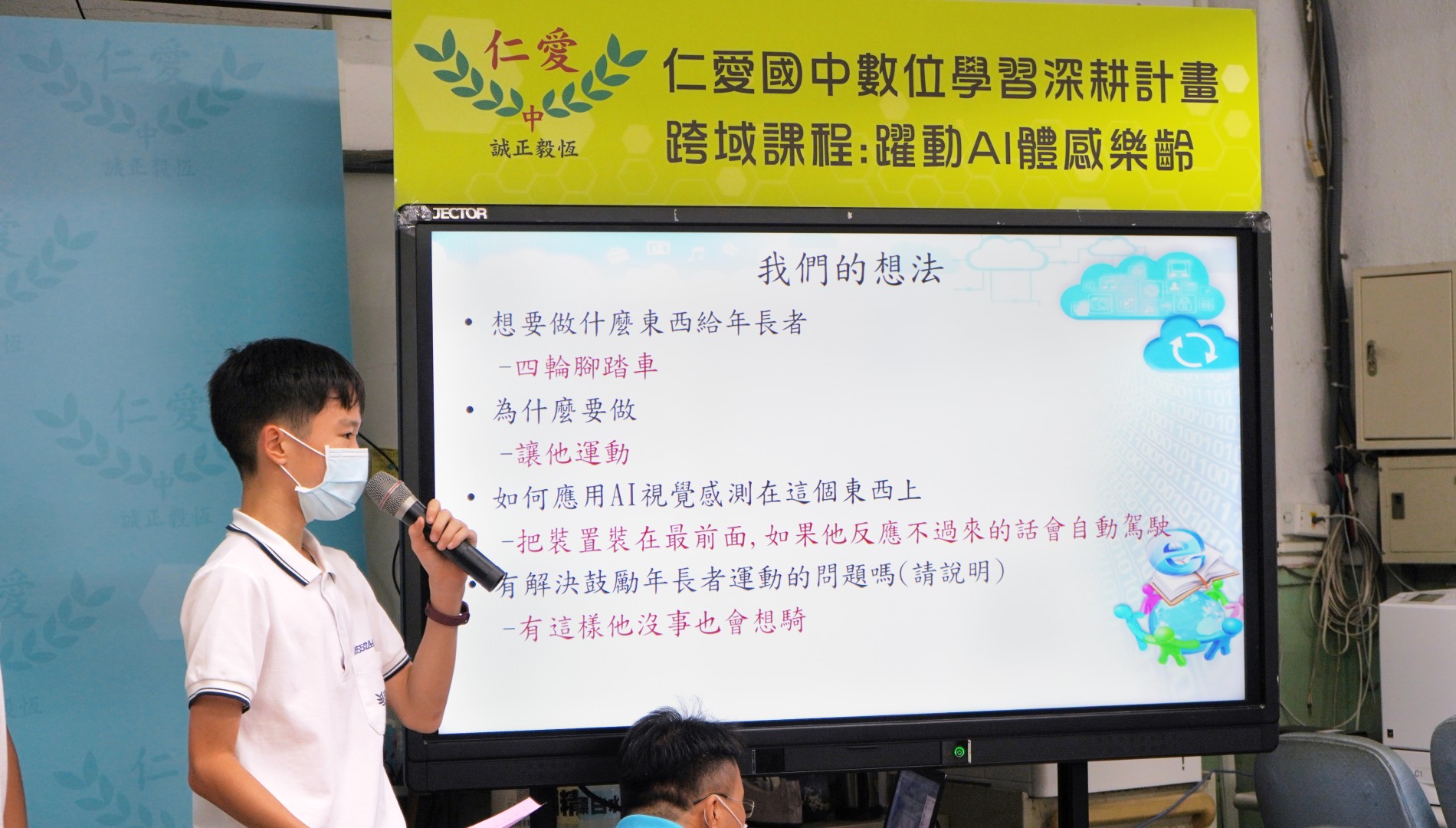威盛電子在五月十五號當天參與台北市立仁愛國中一項特別的人工智慧教學活動。這次的活動是由教育部指導並於仁愛國中執行的數位學習深耕計劃第八堂課,為威盛電子與仁愛國中攜手合作呈現精彩成果。經過這次的活動,參於仁愛國中AI教學活動的學生們利用威盛Pixetto視覺感測器來展現他們之前所學的機械和程式語言基礎概念。威盛Pixetto的價值不僅在於它的高科技功能,除了是一款具高解析度的視覺感測器,更兼具顏色、形狀、人臉、甚至字體的辨識能力,更是一項能成功將AI導入台灣教育的最佳利器。

當天的“躍動AI體感樂齡—線上公開授課”現場直播給全台各地的老師們,課堂內容則是討論如何利用AI來解決老年人生活不便的迫切社會議題。帶領研發人工智慧相關教學內容的台師大科技系張玉山教授強調,教學計劃的目標是要提倡實用學習,並且“解決生活上的問題”和推廣“人性化的人工智慧。” 經過威盛Pixetto的實際示範操作後,學生一起思考如何利用它的AI功能來特別針對老年人在日常生活中的困難和鼓勵他們的在生活中有更多參與度。課堂結束前,學生們給了關於能藉由威盛Pixetto實行計劃的團體報告。透過對於AI科技的實驗性思考和規劃,學生們能培養出對活用人工智慧有更進一步的了解。
我們這一次與仁愛國中的合作為科技產業透過設計教學產品以培育未來人才的範例之一。威盛Pixetto是一個能提倡基礎人工智慧以及電腦程式教學的平台,除了能供應一系列的預設視覺程式模型,也有包含較適合初級使用者且容易操作的Blocks程式積木介面。此款視覺感測器也適用於更高階的Python程式語言並且提供了一個機器學習加速器來生成新的神經系統模型。不管是在校或在家,學生們都能藉由威盛Pixetto來實驗他們自己的程式創作。目標就是為了促進學生們的AI學習以及培養他們對這個領域的興趣和熱情。
要設計一個能將AI方面的知識有效的教導給大量學生最困難的地方應該就是創造出一個設計給缺乏經驗的用戶且能同時維持對高階用戶擁有吸引力的科技產品。畢竟人工智慧,就如其他學術領域,是一門不僅限於概念的科目,學生們一定要有活用教科内容的實體操作經驗才能達到最有效的學習。為了培育未来的人才,威盛科技將踴躍貢獻我們的科技資源來提倡學生們的人工智慧教育。我們盡情期盼威盛Pixetto能作為更多未來發展的第一列。
本文由就讀於賓州大學的威盛電子實習生—程悅之所撰寫。
